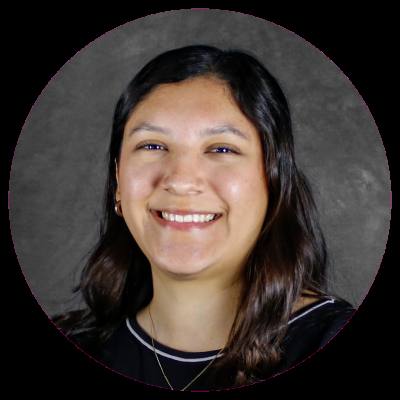The backstory
Centro Cultural Hispano de San Marcos, or Centro for short, was founded in 2010 by Gloria Salazar, Lupe Costilla, Margie Villalpando, Rosina Ruiz Valle and Ofelia T. Vasquez-Philo. According to Salazar, Vasquez-Philo, who passed away in 2017, was the leader of the group.
Born in Seguin and raised in Wimberley Vasquez-Philo was the first Latina to serve on the San Marcos CISD board from 1969 to 1971.
“She really began with that vision of ‘Let's have a place where we can preserve the history of the Mexican families here in San Marcos and preserve the culture’” Salazar said.
According to its website, Centro's mission is to preserve and celebrate San Marcos’ Hispanic heritage, arts, culture and values. Its location at 211 Lee St. is in a historically Hispanic neighborhood of San Marcos and is housed in what used to be called the "Mexican School,” Salazar said.
“If you're at The Square and ... you look from San Antonio Street to the interstate, all that area was a Hispanic community,” Salazar said. “It was a whole community that had its own businesses, its own stores, its own dry cleaning, its own mechanics and fruit stands, its own doctor.”
The "Mexican School" was later renamed Southside School and later became the former Bohnam Elementary School. Salazar said the building was sitting empty when they began looking for a place to house Centro. She said San Marcos CISD leased a portion of the building to them and they gradually realized they needed more space. After years of renting the campus, SMCISD donated it to Centro in March 2022.
Inside Centro, the lobby’s walls are lined with framed photos of some of San Marcos’ Hispanic leaders and business owners. A mural on the wall depicts Hispanic-owned businesses that served the community like the Costilla Tortilla Factory and San Marcos Grocery.
Amanda Rodriguez, Centro’s board president, said the organization serves the purpose of educating new and existing San Marcos residents about the city’s roots. Centro protects the neighborhood, she said, and helps preserve what's left of it.
“The idea is that as we continue to grow and as we continue to do this work, people will be so familiar with [the history] to the point where it's like so in their face,” Rodriguez said. “And that's the goal because this town is what it is because of all of those contributions."
What they offer
Centro’s programs include art, youth mariachi, ballet folklorico and piano classes. Most classes are free, and scholarships are available for those with fees. Programs are made possible through partnerships with local organizations, the local school district and Texas State University departments.
The building also has the Ofelia T. Vasquez Mexican American Culture Museum, a library with books written by Hispanic authors, paintings in each classroom from Hispanic artists and a community garden out front.
Centro has resources for parents and families too, such as pointing them in the right direction of a service where someone can communicate in Spanish.
“We try to also make it the multi-purpose place that it is [and] to also have those facets where we can continue to serve people in a myriad of ways, even if it's not us directly doing it through those partnerships,” Rodriguez said.
Why it matters
Rodriguez said she has seen how grateful parents and families are for Centro and its offerings.
“For so many people, they want their kids to do great things, but it's unattainable, it's unaffordable,” she said. “We break those barriers, and they are so cognizant of that.”
Beyond the programs, Rodriguez thinks they have exceeded their own expectations of what Centro could be. She said they will continue to talk with community members about what else can be accomplished.
“I don't think we would have been able to do that on our on our own,” Rodrguez said. “That took community buy-in, that took trust, that took years of building rapport.”
Get involved
Those looking to volunteer at Centro can contact the office and let them know their interest areas such as assisting in classes, doing outside work or cleaning.
- 211 Lee St., San Marcos
- www.sanmarcoscentro.org











